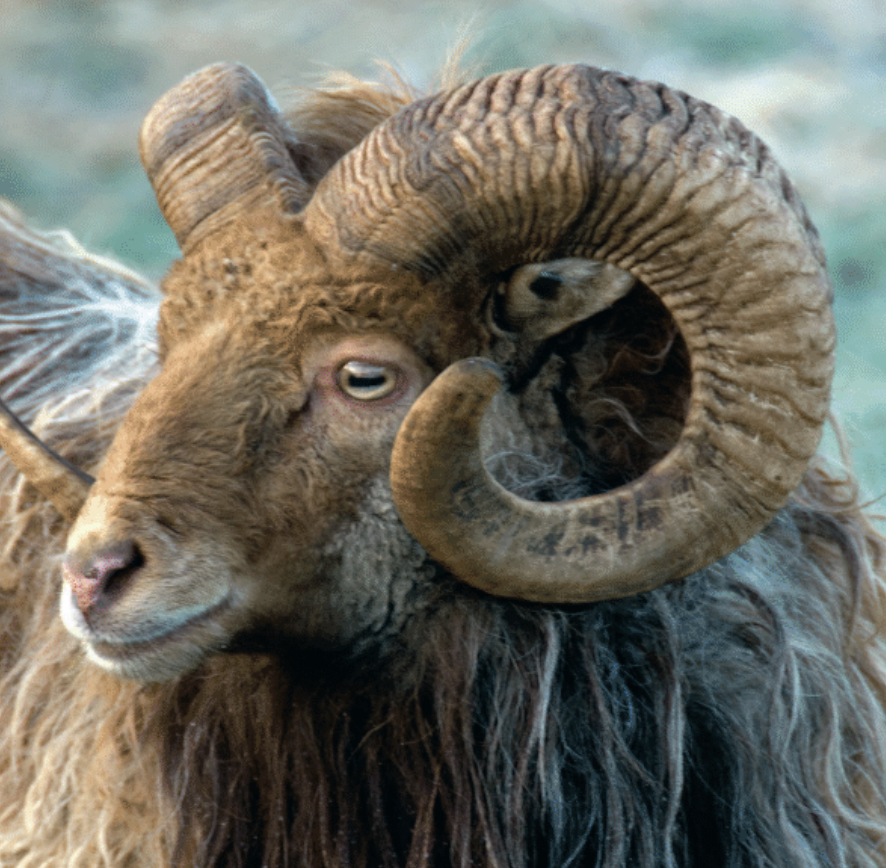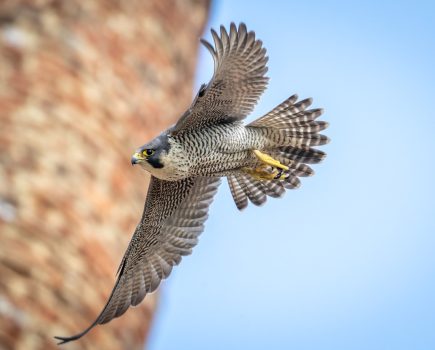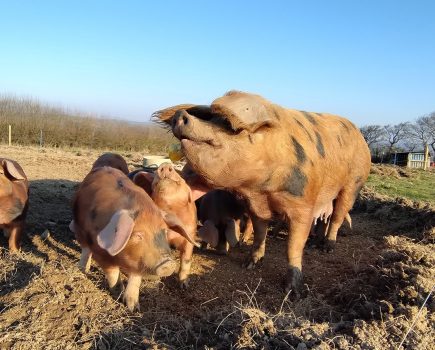Rare Breeds Survival Trust Chief Executive Christopher Price tells us more about one of the rarest sheep breeds.
The North Ronaldsay is one of the UK’s rarest sheep breeds, one of just the four sheep breeds categorised as a Priority breed on our current Watchlist. There is a strong, collaborative effort underway to strengthen the breed’s outlook for the future and to overcome some of the key challenges that the breed currently faces. In addition to the North Ronaldsay’s genetic and biodiversity value for farming and the natural environment, the breed’s survival is also important on the Orkney Islands in particular for the local meat market, the island’s woollen mill, and for the breed’s irreplaceable heritage and tourism value.
Small and slender, ‘Ronnies’ can be white, grey, black or moorit. With this variety of colours and a high quality, North Ronaldsay wool is popular with hand spinners, felters, knitters and textile designers and the breed is a good choice for smallholders interested in producing and marketing woollen products.The flavour of North Ronaldsay meat is highly prized, with the slow-growing animals particularly renowned for hogget and mutton. Sheep of the North Ronaldsay type are thought to have lived in the Orkneys since the Iron Age.
Small and hardy, it is one of the UK’s seven native primitive breeds alongside the Boreray, Castlemilk Moorit, Manx Loaghtan, Soay, Hebridean and Shetland breeds. Evolving over centuries to survive primarily on seaweed, semi-feral flocks live on the rocky seashore of the northern most Orkney island for most of the year and only need to be brought on to better land for lambing.
The unique sheep keeping system on North Ronaldsay is based on a drystone Sheep Dyke which was constructed by hand in 1832. This essential barrier keeps the communal flock on the foreshore to graze on seaweed, facilitates their light-touch management, and helps ensure genetic distinction from inland breeds.
EVALUATING IF INBREEDING HAS AFFECTED THE FLOCK
However, it has long been very difficult to establish how significantly the breed had been affected by inbreeding. Genetic diversity is crucial for the survival of a breed with such a small population and there were some serious concerns that genetic diversity had been compromised within the flocks on the island. We recently worked with island flock owners and Scotland’s Rural College (SRUC) to complete the first genotyping study for the breed, using advanced techniques to assess genetic variances. The genotyping project was based on nasal pharyngeal swabs taken from a representative sample of the 1,500 North Ronaldsay sheep on the island, with the genomic analysis led by Professor Georgios Banos at SRUC. The results of the study brought valuable and very welcome news: the analysis of the genomic diversity showed considerable historic inbreeding, but only very limited inbreeding more recently.
The results of the study suggested that one of the seven North Ronaldsay flocks on the island was genetically the most distinct, with a higher level of inbreeding. This is believed to be a flock that is geographically more isolated, being more or less landlocked on one area of the shore. However the study determined that overall, there are satisfactory levels of genetic diversity among the isolated sheep population on the island.This crucial information is now helping steer the conservation approach for this unique breed.
The fears around the potential for inbreeding and loss of genetic diversity within the flocks on the island really underline the importance of the growing number of North Ronaldsay flocks which are found much further afield, from Hampshire and Wales to Lincolnshire and Northamptonshire. The sheep adapt well to mainland management including conservation grazing and these flocks are not only helping increase the breed population numbers and improve genetic diversity, they are also crucial for the breed’s resilience if the population on the island were to face a localised crisis such as disease.

RBST Trustee Martin Penny
NORTH RONALDSAY SHEEP KEPT ON A WORCESTERSHIRE SMALLHOLDING
One such flock is kept by RBST Trustee Martin Penny and his wife Claire, who keep North Ronaldsay sheep at their smallholding near Offenham, Worcestershire. Claire’s lifelong interest in rare breed conservation inspired enthusiasm for conserving native livestock and equine breeds in Martin too, and they started their North Ronaldsay flock in 2018. Martin and Claire are building up the flock and exploring how their sheep’s genetics can be used to support the wider breed’s future, thus playing an important role in securing this rare breed’s future. Due to the breed’s historic adaptation to a seaweed diet, cNorth Ronaldsay sheep are very sensitive to copper but this can be managed successfully through measures including careful feed selection. Ronnies are a fantastic, distinctive sheep for smallholders, hardy and small with plenty of character, a lot of variation and unique sought-after produce. Visit www.rbst.org.uk/north-ronaldsay to find out more.
This article extract was taken from the March 2024 edition of The Country Smallholder.
To receive regular copies of The Country Smallholder magazine featuring more articles like this, subscribe here.
For FREE updates from the world of smallholding, sign up for The Country Smallholder newsletter here.








